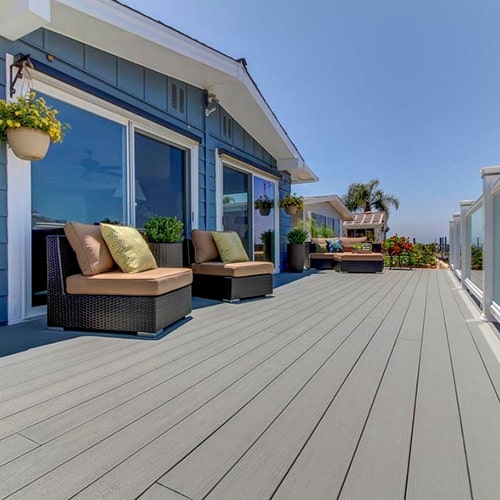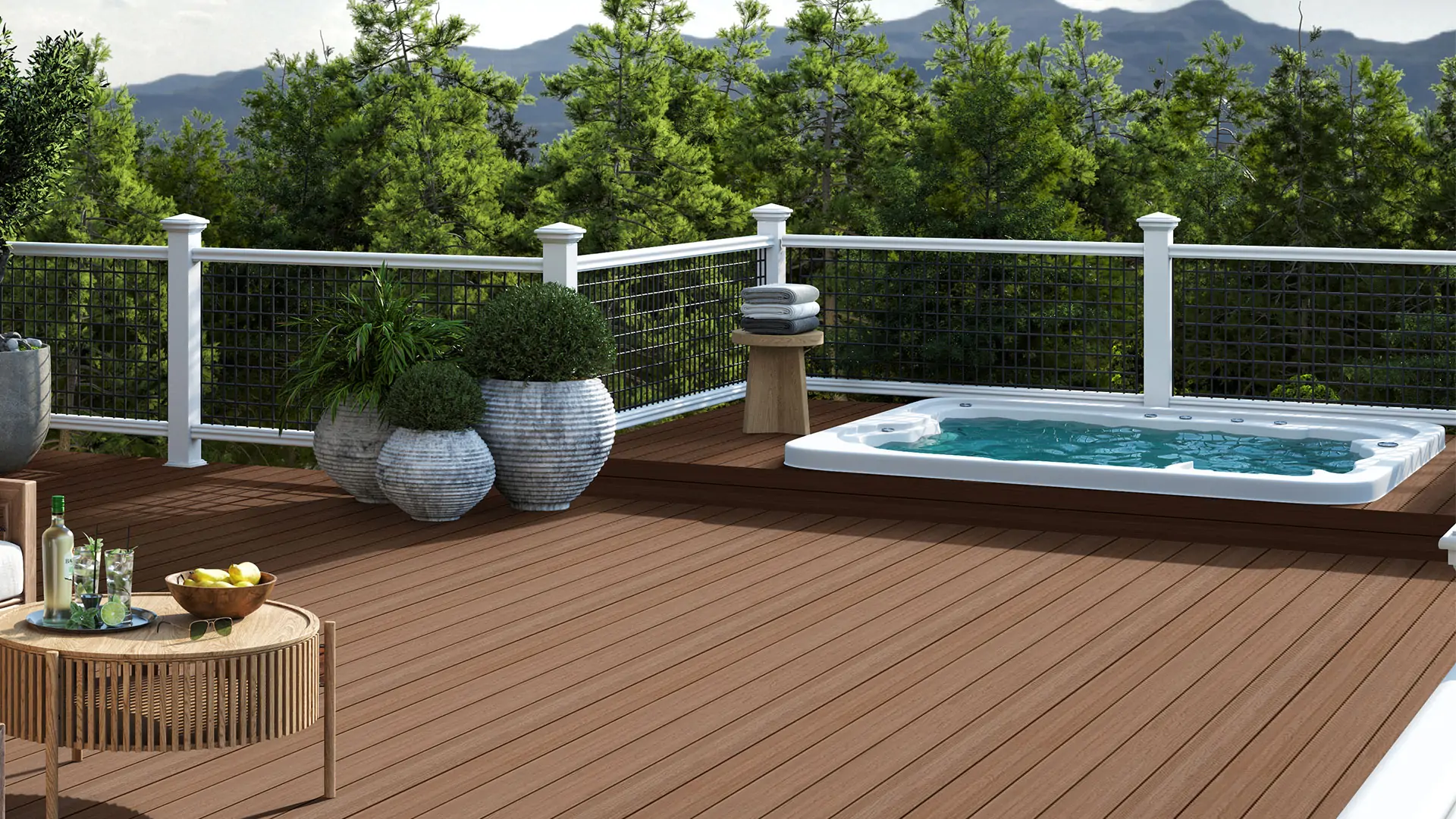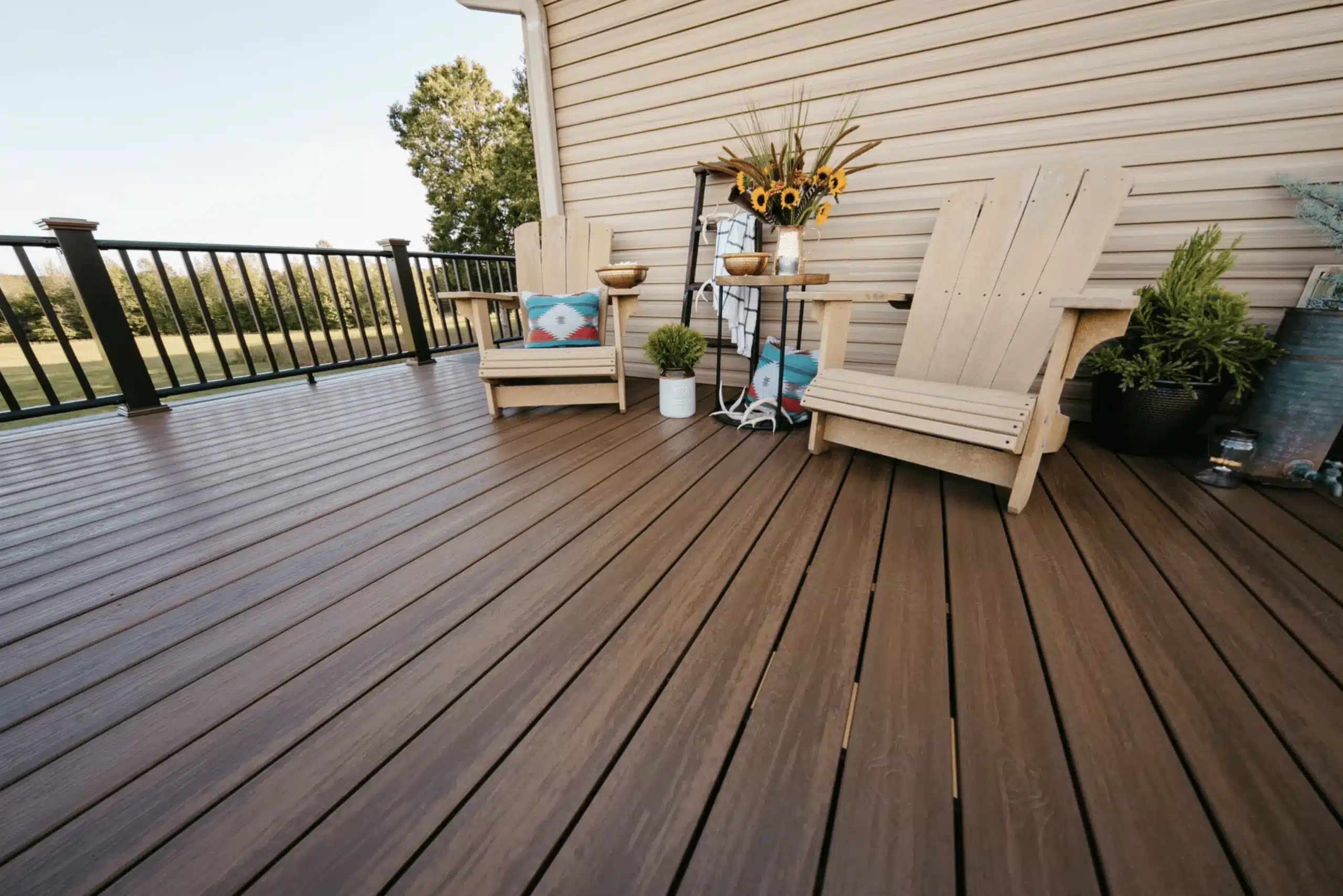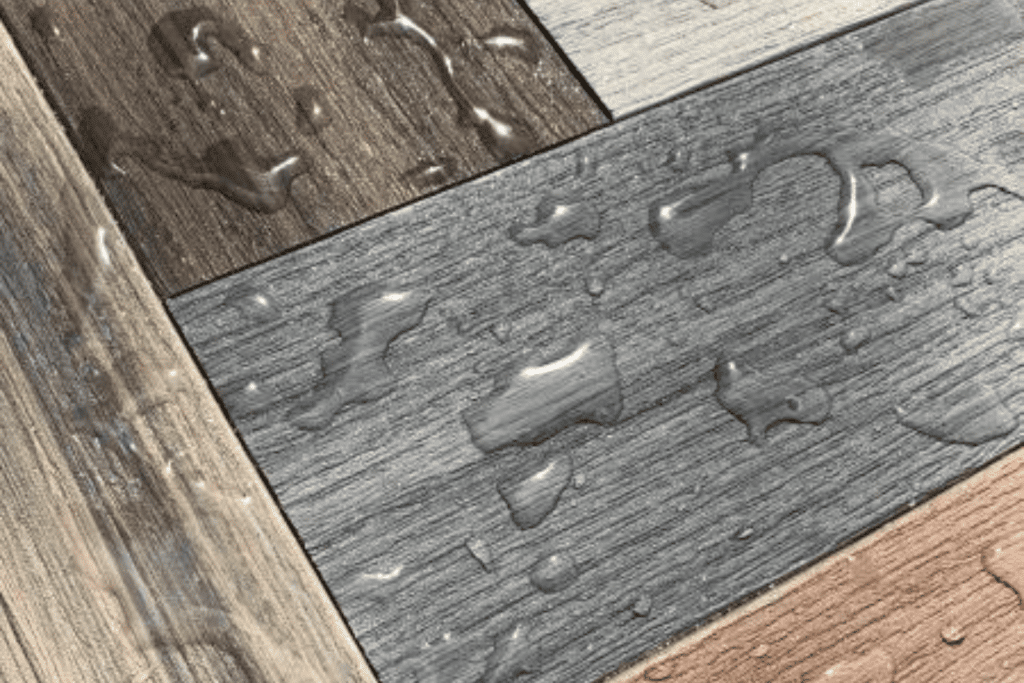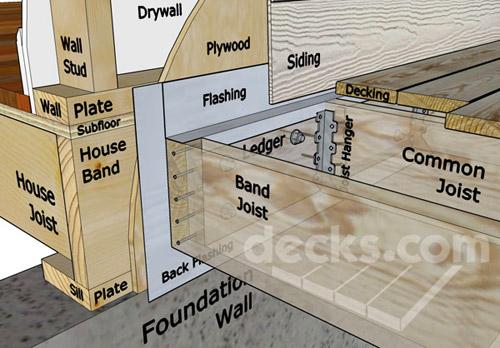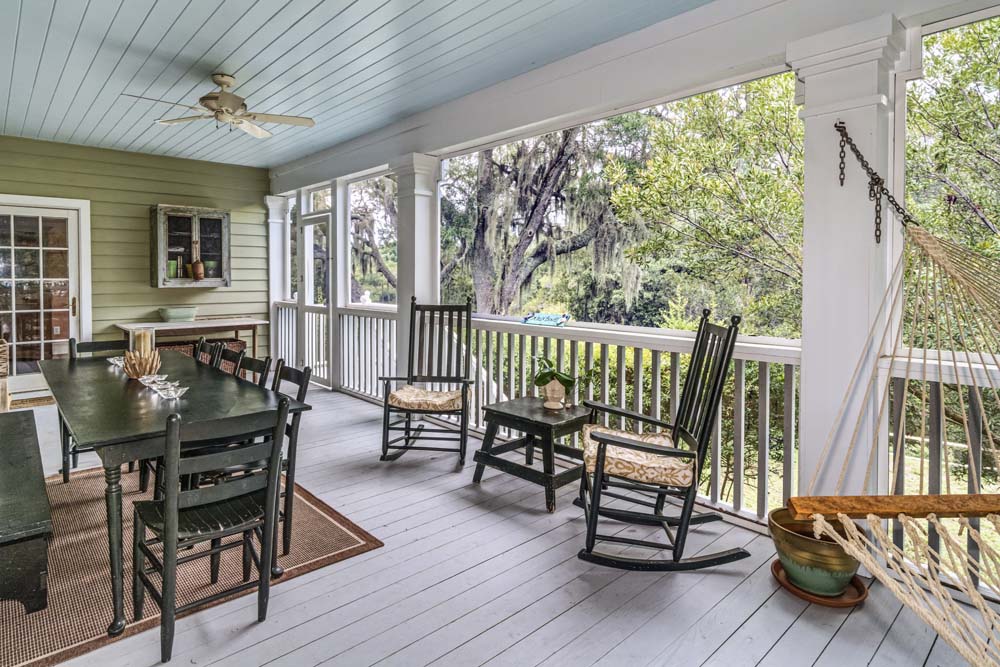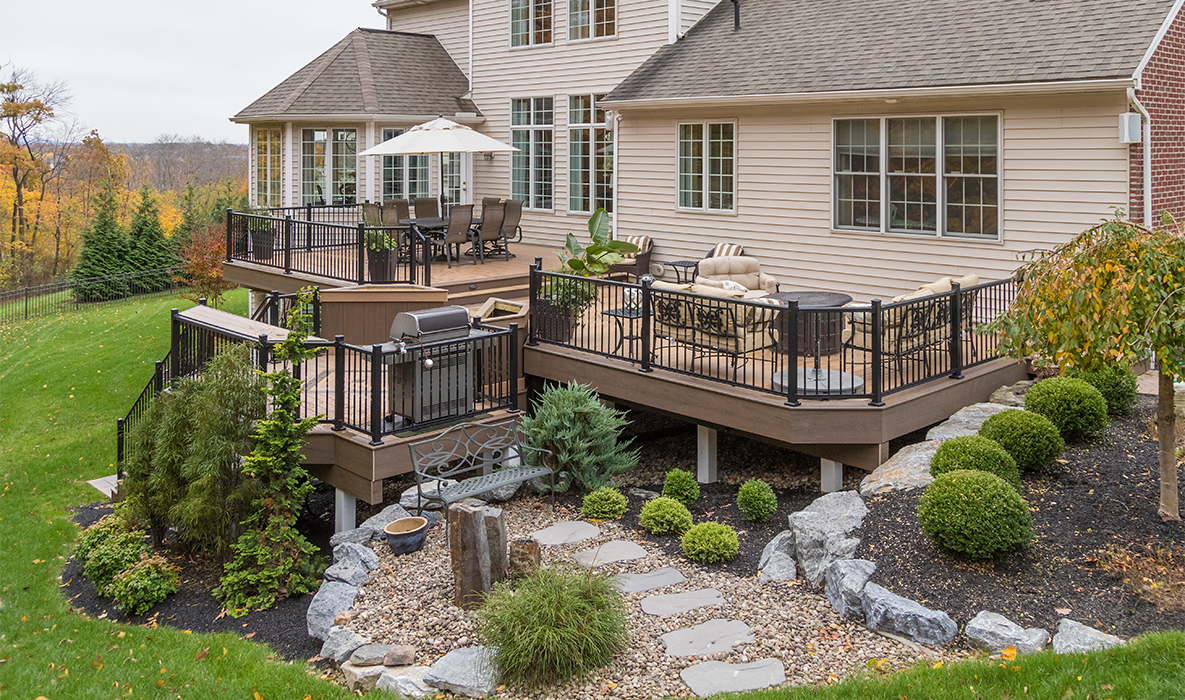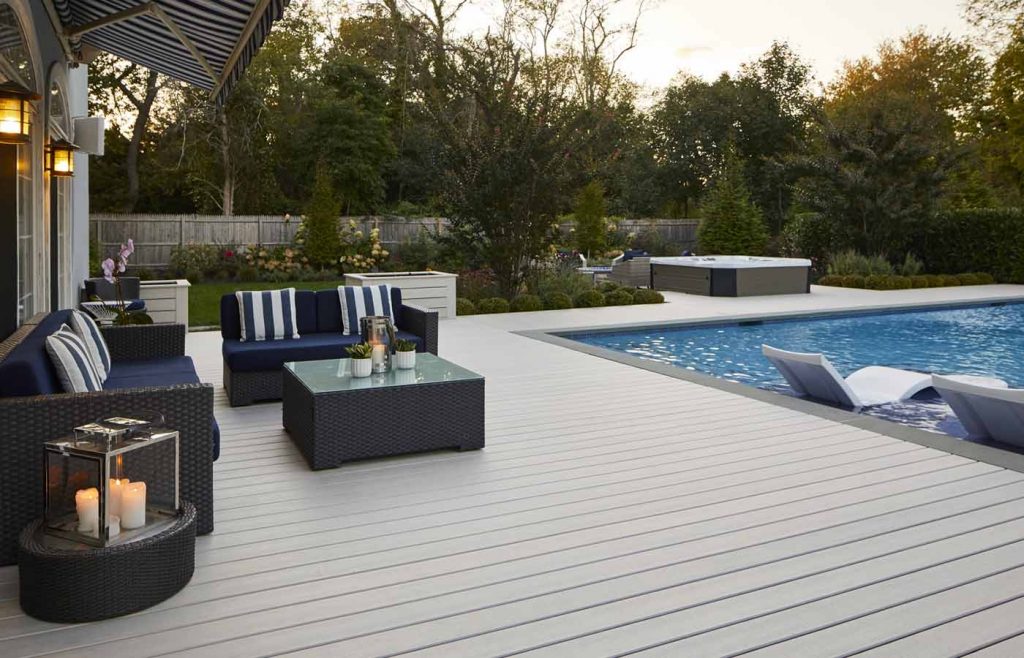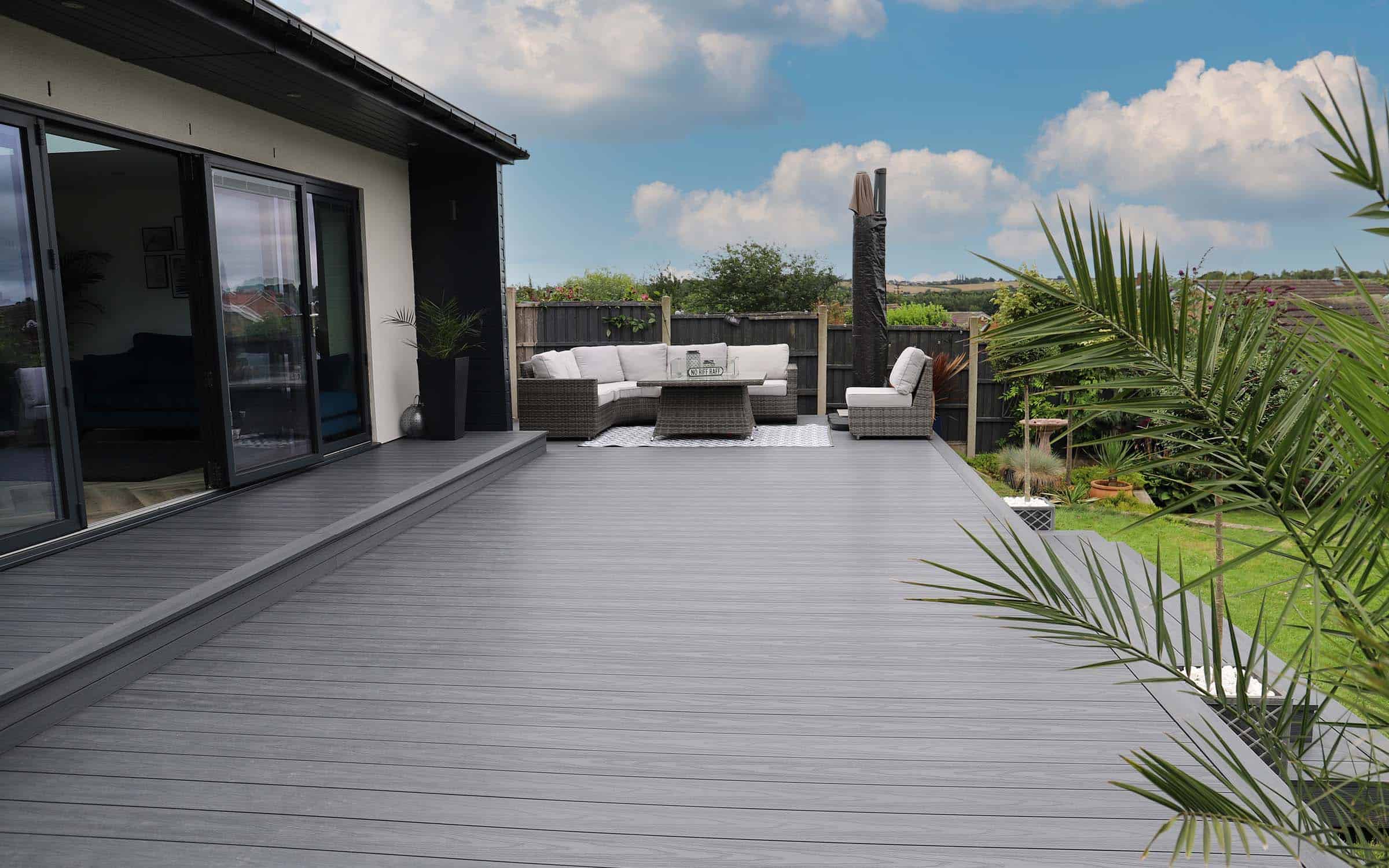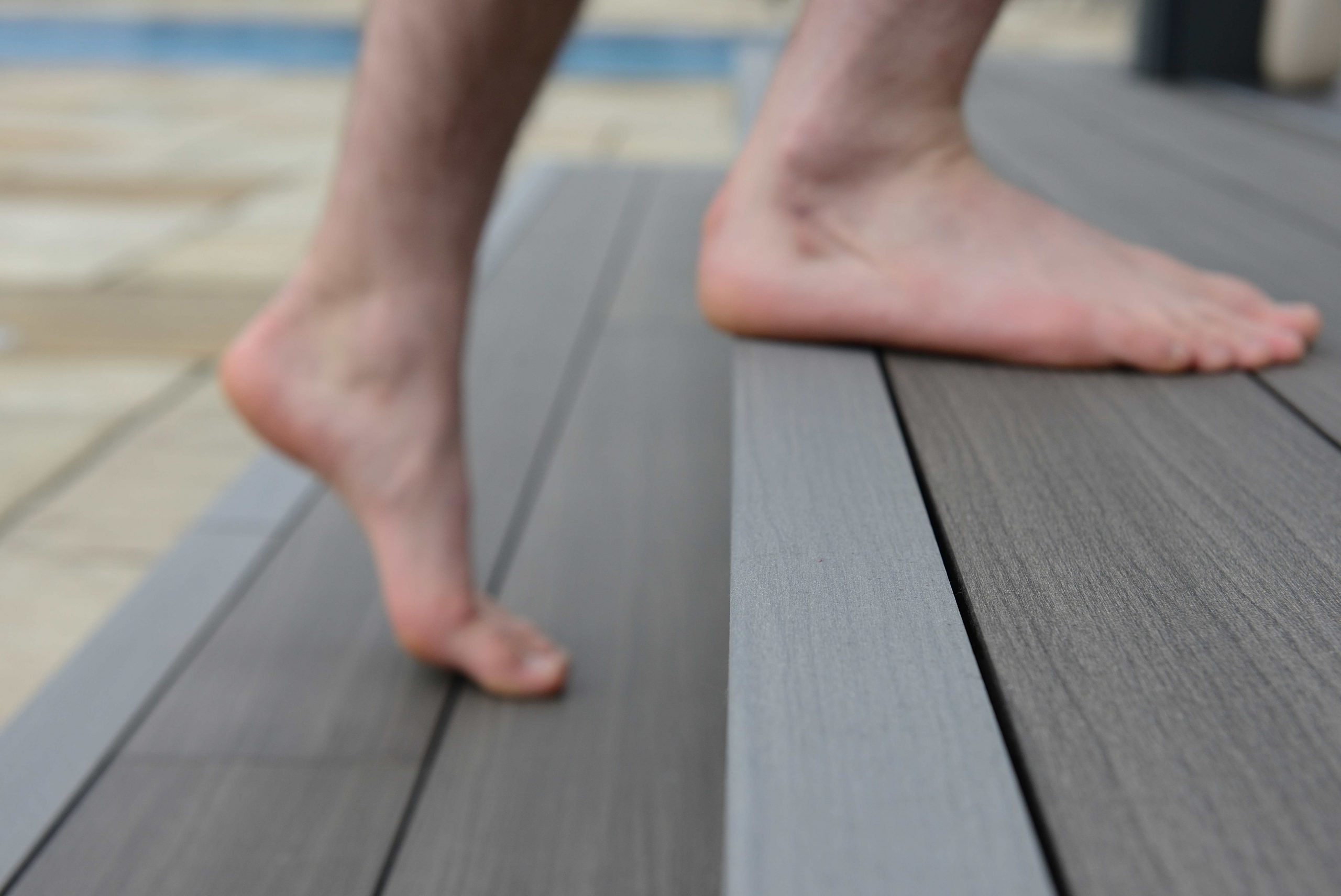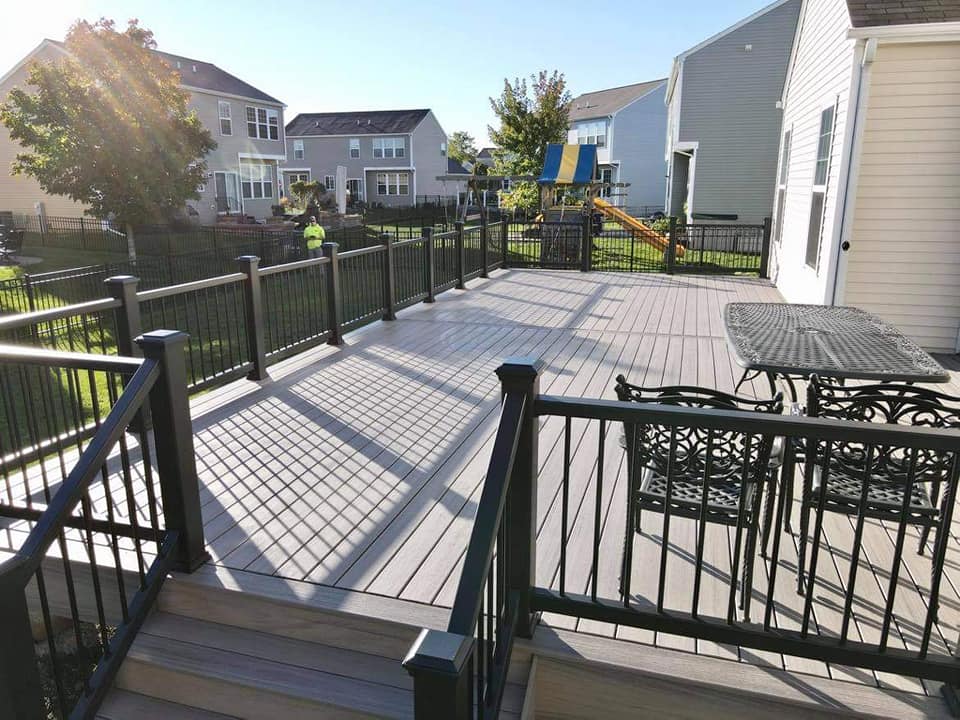Trex decking has gained popularity in recent years as a low-maintenance alternative to traditional wood decking. Manufactured from a combination of reclaimed recycled plastics and wood fibers, Trex decking offers a range of benefits. However, like any other material, it also has its drawbacks. In this blog, we will explore the pros and cons of Trex decking, allowing you to make an informed decision when considering it for your next decking project.
Pros of Trex Decking
- Low Maintenance:
Trex decking requires minimal maintenance compared to traditional wood decks eliminating the need for regular staining, painting, or sealing. Cleaning is as simple as brooming debris off, using soap and water to wash dirt, making it an attractive option for homeowners seeking a hassle-free deck.
- Durability:
Unlike wood, it is resistant to splintering, and rotting. Trex boards are engineered to withstand the elements, including harsh weather conditions and UV exposure, making it a long-lasting investment for outdoor spaces.
- Environmental Sustainability:
Trex decking is an eco-friendly choice, as it is made from a combination of recycled materials. By utilizing reclaimed wood fibers and plastic, Trex helps reduce the demand for new timber and minimizes waste sent to landfills.
- Aesthetics:
Trex decking offers a wide variety of colors, finishes, and grain patterns, allowing homeowners to achieve the desired look for their outdoor space. The material can mimic the appearance of natural wood, providing a warm and inviting atmosphere without the drawbacks associated with real wood, such as splinters and discoloration.
- Resistant to Pests:
Trex decking is not susceptible to termites or carpenter ants. This eliminates the need for chemical treatments and safeguards the integrity of the structure.
Cons of Trex Decking
- Cost:
One of the most known drawbacks of Trex decking is its initial cost, which tends to be higher than that of traditional wood decks. While the price may vary depending on the specific product line, Trex generally carries a premium price tag. However, it’s important to consider the long-term cost savings due to reduced maintenance requirements.
- Heat Retention:
Trex decking has been known to retain more heat than traditional wood decks. This can be a concern in hot climates, where the surface temperature of the deck may become uncomfortable for bare feet. However, the use of lighter-colored boards can mitigate this issue to some extent.
- Susceptibility to Scratching:
While Trex decking is durable, it is not entirely impervious to scratches. Heavy furniture or dragging heavy objects across the surface can leave marks. However, mild scratches can often be disguised.
- Limited Natural Appearance:
Despite its ability to mimic the look of real wood, some homeowners may find that Trex decking lacks the authentic feel and texture of natural timber. Although advancements have been made to enhance aesthetics, the discerning eye can still differentiate between Trex and genuine wood.
- Expansion and Contraction:
Like any composite material, Trex decking can experience expansion and contraction due to temperature fluctuations. Proper installation and leaving adequate spacing between boards can minimize the impact of this issue but will still occur.
- Class Action Lawsuits
Due to claimed product flaws and deceptive marketing promises, Trex has been the target of class action lawsuits. Customers have voiced complaints regarding problems like cracking, warping, fading, mold development, and discoloration. These issues raise doubt on the dependability and quality of Trex Decking products. For homeowners, the lawsuits may mean spending money to replace or repair their decks. In general, the cases serve as a reminder to customers to carefully investigate and assess decking materials before making a purchase.
7. Comparison to other Brands
While Trex is best known for composite decking, does not make it the best. We recommend researching other composite brands and compare side by side.
Conclusion
Trex decking offers numerous advantages that make it an attractive choice for homeowners seeking a low-maintenance, long-lasting, and eco-friendly decking solution. Its resistance to fading, and staining, low maintenance, with its range of colors and finishes, provides an appealing alternative to traditional wood decks. However, the initial cost, heat retention, susceptibility to scratching, and limitations in replicating the natural appearance of wood are factors that should be carefully considered. By weighing the pros and cons of Trex decking, you can make an informed decision based on your specific needs and preferences.



